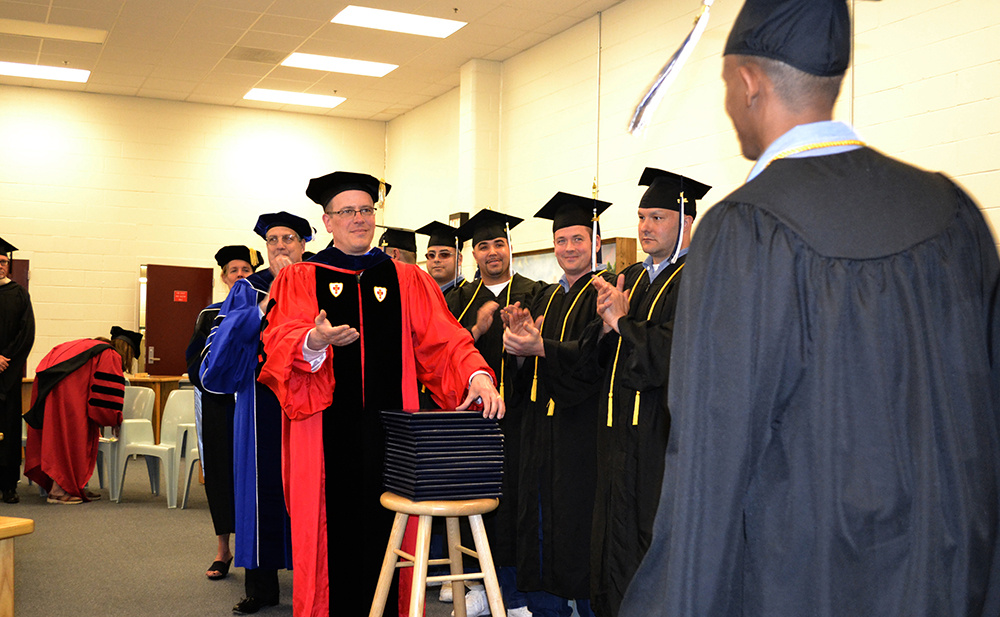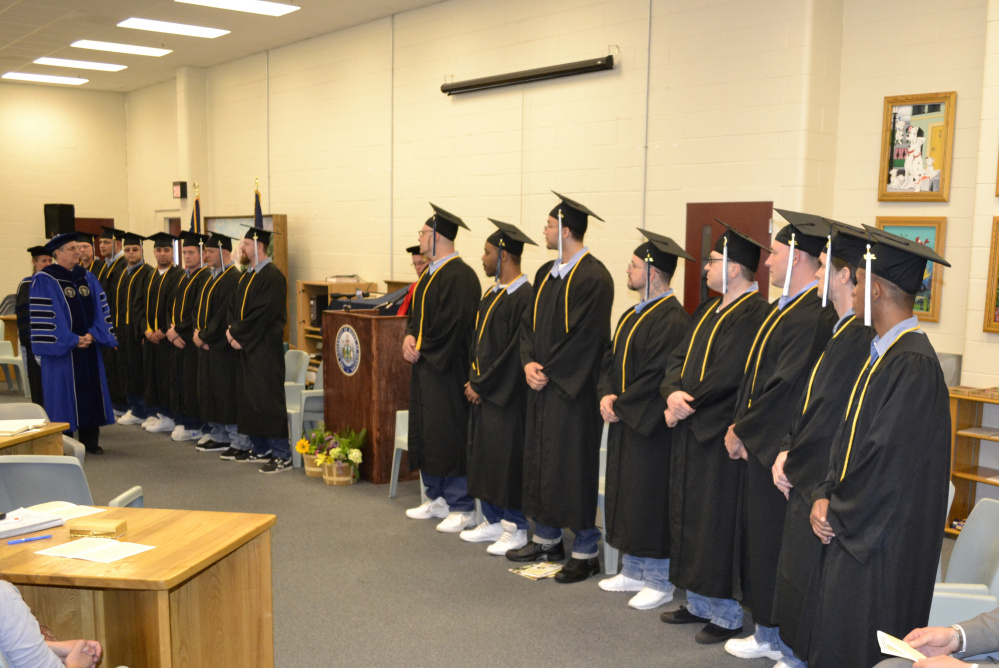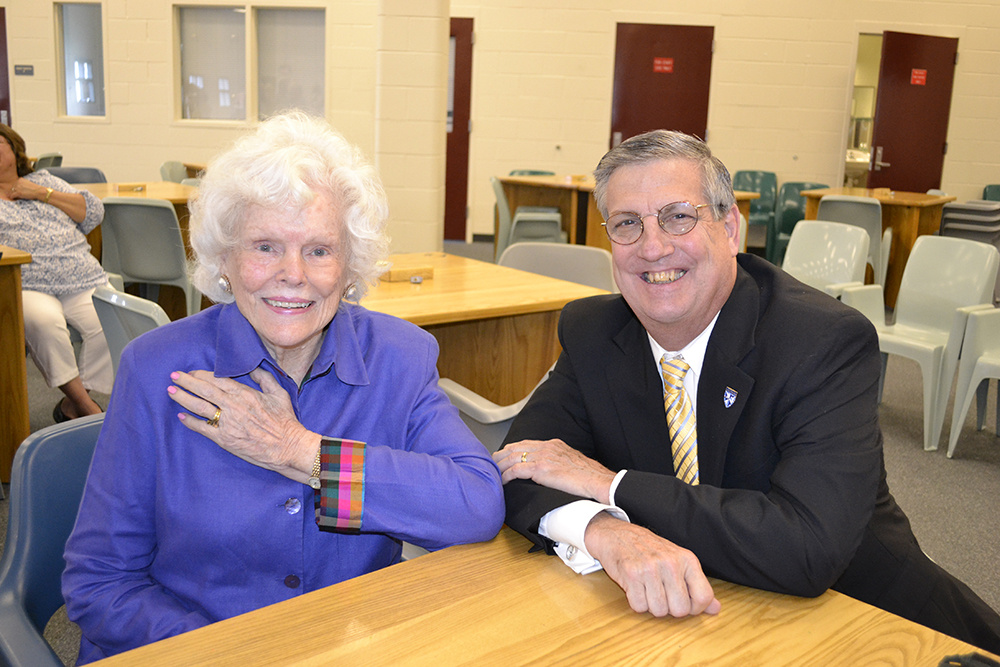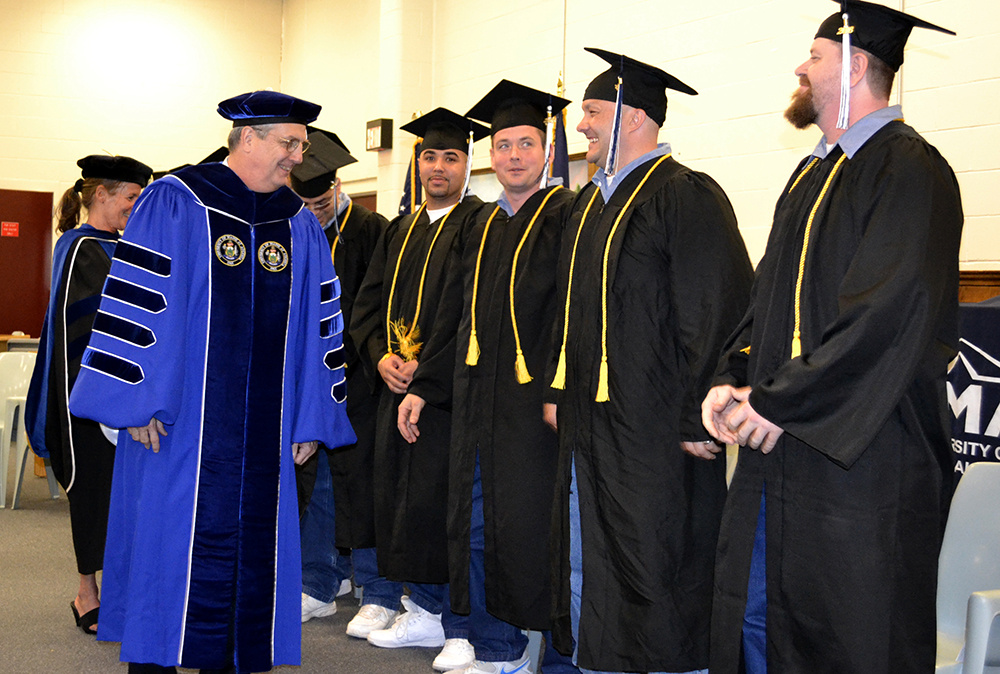They did not have internet access. They were allowed a pencil, their desire to learn, and access to professors from the University of Maine at Augusta.
Those 17 UMA graduates, who earned either an associate of arts in liberal studies or a bachelor of arts in liberal studies, faced unusual challenges to reach the day of their graduation on June 15. These included negotiating the constraints of prison life, where one’s best intentions to stay out of trouble can be defined by someone else’s determination to cross your path.
Through the entire process — which for some inmates took close to a decade from start to finish — they weathered the daily trials that come from both the stigmatization of a felony conviction and the weight of their own past.
To participate in the UMA degree program as an inmate is a privilege supported by The Sunshine Lady Foundation, a philanthropic focus for Doris Buffet, sister to billionaire investor Warren Buffet, the program’s screening process is rigorous, thorough and realistic.
“This program changed the conversation,” one inmate said during the Maine State Prison Graduation Celebration, held the prison in Warren, Maine. “I would be in line listening to a conversation in front of me about philosophy, while the conversation behind me was about drugs.”
Beyond stereotypes
“My brother (Warren) came to a (prison) graduation and said, ‘There’s such love in this room,'” Doris Buffet said.
The seemingly incongruous juxtaposition of “love” with the context of a prison graduation was apropos of the event and atmosphere in the room. Transcendent hope might accurately describe the setting on this day as a guard opened a side door, ushering graduates into the room.
They marched to applause and cheers in single file to the far side of the room, abruptly changing direction to take their seats across the front of the room.
Soon, despite the lack of mobility for graduates and guests alike, the setting dissolved into the background of the occasion. The graduation became a time to reminisce on classes, give thanks to professors and supporters, and evoke lessons learned.
Abdi Awad, an inmate and native of Somalia, who received the perseverance award, declared that he had, as a result Professor Taylor’s course, become a feminist. Awad won the perseverance award in part because he could not speak English when he started the program, but not only learned a new language but went on to earn an associate of arts in liberal studies degree with honors.
Inmates as role models
Encapsulating the importance of Doris Buffet and The Sunshine Lady Foundation, Debrah Meehan, a staff member who has been with the prison education program since day one, pointed out that in the 1980s there were 350 college programs in prisons nationwide.
Higher education was an integral part of prison life. That changed after the signing of the violent Crime Control Act in 1994, when federal financial aid was removed for those incarcerated.
“When colleges left prisons, the hope left also and for a long time it seemed that nobody cared,” Meehan said. “And when uneducated prisoners got out, they often went right back into prison. But thankfully someone has cared!”
Thanking Doris for the more than $2 million she has gifted to prisoner education in Maine, Meehan underscored a theme of the day, namely that the philanthropy of a caring individual and her foundation has provided a sea of change in the way that a group of convicted felons experience the world around them.
This year UMA was awarded the “Second Chance Pell” opportunity for its prison education program from U.S. Department of Education. The project will enable UMA to expand post-secondary education opportunities to a second state prison facility, the Maine Correctional Center in Windham, in 2017.
Mark Tardif is executive director of strategic marketing and public affairs at the University of Maine at Augusta. A native Mainer, Mark has also spent part of his professional career as both an English professor and journalist.
Send questions/comments to the editors.







